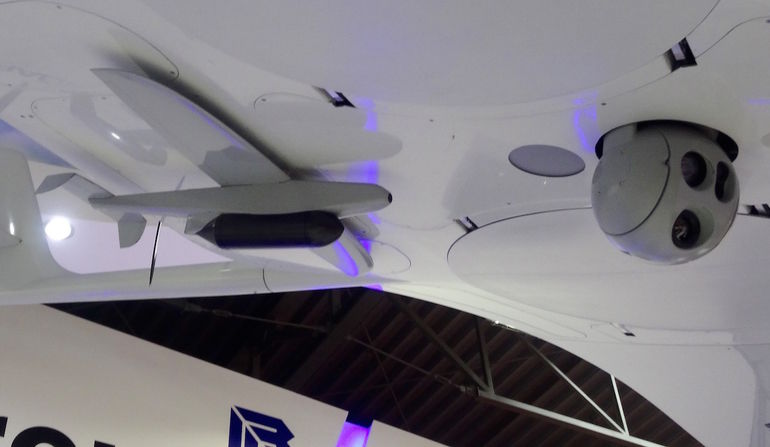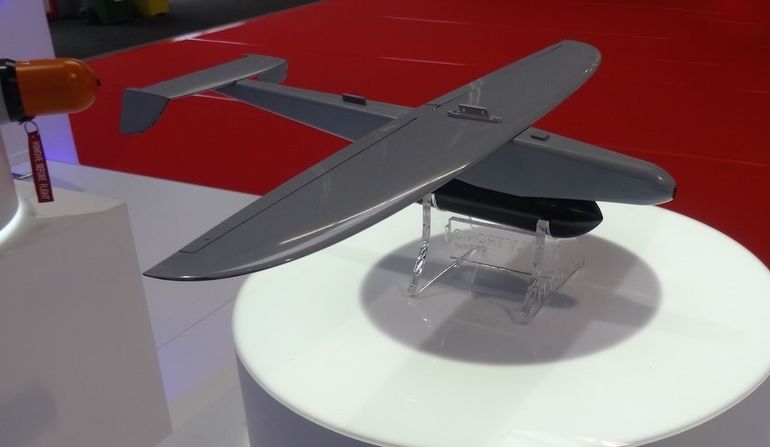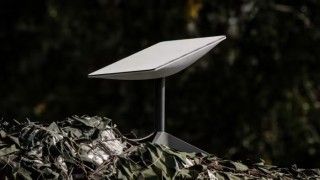- WIADOMOŚCI
MSPO 2015: VTOL Manta UAV And Warmate UCAV
WB Electronics presented a wide range of UAV systems during the MSPO event. The company’s offer is addressed to the Polish Army and beyond. The central spot is taken by the Manta UAV, coming both in conventional, as well as in a VTOL variant. Secondly, Warmate ‘loitering munition’ UCAV is also a highlight of the booth. Cooperation undertaken by the WB Group with the British Thales UK company is another novelty. The cooperation resulted in interoperability of the control systems for Manta, FlyEye and Watchkeeper UAVs.
WB Electronics is entering the competition in the “Gryf” programme tender, in cooperation with the Thales UK company, offering an UAV which is based on the Watchkeeper system. The joint Polish-British offer is said to involve the Polish industry in the key technological areas of the project, such as the data link, mission computer, software, optronic devices, encryption elements, integration of the communications system and command and control suites.
It is a better solution to acquire the airframe abroad, since it constitutes one of the cheapest elements of the system – 10-15% of the total price. The elements inside are definitely more relevant here. The “brain” of the whole system is responsible for its operation – and this element has already been developed by the Polish companies.
The cooperation is going to result in development of a UAV system which is going to be marketed in Poland and beyond – in the third countries. The British company is interested in the lighter UAV systems manufactured by the WB Electronics, such as the FlyEye – the Thales UK offer does not include any counterpart of such system.
Interoperability of the UAV systems designed by both companies is going to be one of the effects of the joint cooperation. The above means that the ground control system of the Watchkeeper UAV will be capable of controlling the WB Electronics UAV’s. The aforementioned capabilities are being already presented during the MSPO Exhibition, at the booths of both of the involved companies.
The WB Electronics offer within the scope of the UAV extends beyond the Gryf programme, in a form of the Manta, FlySAR or FlyEye systems. The two former UAV’s are qualified to take part in the Orlik programme, run by the Polish Ministry of Defence at the moment.

Manta is showcased both in a conventional, as well as in a VTOL variant. As the representatives of the WB Electronics company show, the UAV, created in a flying-wing layout, is in possession of capabilities that are unachievable for the conventional systems. Starting from November last year, Manta UAV is allowed to fly in the public airspace, in the same way as the manned aircraft, thanks to the special certificate granted by the Polish Civil Aviation Authority.
However, should the requirements published by the Ministry of Defence turn out to be more conventional, WB Electronics may propose the FlySAR UAV, with a conventional airframe fitted with a pulling propeller and reconnaissance equipment. Flight parameters are close to those offered by the Manta UAV, meaning that the flight endurance reaches at least 12 hours, within a distance of 200 kilometres from the control station. The FlySAR’s operational ceiling is 5 thousand meters.

Another interesting concept developed by WB Electronics comes in a form of the Warmate “loitering munition” - UCAV fitted with a warhead which may be utilized to detect, recognize and neutralize the detected targets. These small-sized UAV systems may also be carried by the Manta UAV, however they may also be used by the infantry units or vehicles, with the use of disposable launchers and portable control systems. In order to make the above possible, two variants of the weapon have been developed – gliding one – presented on the hardpoints under the Manta UAV, and a heavier, propelled variant. The latter version of the system also features a larger HEAT or fragmentation warhead.
Transport/launching containers which are going to be portable or mountable on a vehicle, are currently in the development phase. In case of the portable system, preparing the UAV for take-off is possible to be realized in time under 60 seconds, while the vehicular variant shall be capable of taking off within couple of seconds.

Warmate Micro-UAV are fitted with an auto-pilot module which makes it possible to plan the route, direct the UAV towards the selected way-point or make it fly in circles above the target. Semi-automatic mode is also available. This type of the UAV is capable of staying in the air for 30 minutes, waiting for the target or looking for it on its own, without exposing the carrier UAV which would have to laser-designate the desired target.
The project is entirely financed by the WB Electronics company and it was premièred during the last year’s MSPO event. Not only the Polish, but also the foreign experts are curious about the Warmate system’s capabilities.


















